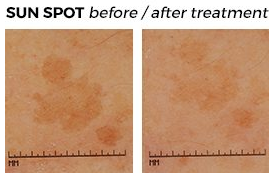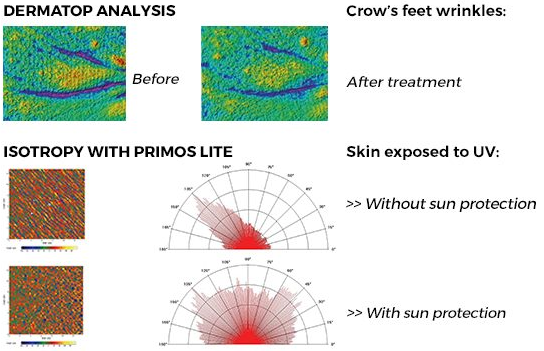Ageing versus photoageing
Cutaneous ageing is a complex and multifactorial process implying structural, functional and aesthetic changes happening at a variable rate [1]. Photo ageing” describes changes that develop after many years of cutaneous exposure to non-extreme, low doses of UV radiations [4].
One of the best-known example of “photoageing” is this 69-year-old man who had driven a delivery truck for 28 years. Chronic UVA exposure, transmitted through window glass, resulted in the progressive thickening and wrinkling of the skin on the left side of his face.
Photoageing: biological effects and clinical signs
80% of facial skin ageing is attributed to UV-exposure [7]. At the physiological level, UV radiations amplify several mechanisms [8]:

Objective and reliable characterisation of the degree of photo-damage is important to evaluate the effect of treatments. Numerous non-invasive technologies can be useful to complete the clinical evaluation [20-25].
Dermscan insightful approaches to evaluate photoageing

Photoageing management can be either preventive (e.g. sunscreen against UV damages) or curative (cosmetics to help reduce skin damages).
To demonstrate the activity of your products on such process, long term studies must be conducted. Thanks to our facility in Tunisia and our partner in Mauritius, we can also offer studies in sunny environments.
Biochemical analysis of non-invasive superficial samples can provide information on the oxidative damages measured on lipids, proteins, enzymes as well as on the inflammatory status (interleukins).

These biometrological approaches complete clinical scoring with any of the well-recognised photoageing scales (Griffiths, Scinexa, Glogau, etc.).
Illustrative pictures taken in controlled conditions highlight the visual benefits obtained with your product.
Find the best approach for your product
Dermscan: the clinical tests’ reference since 1990
You devote your best efforts to make the best product, it therefore deserves the best clinical evaluation!
